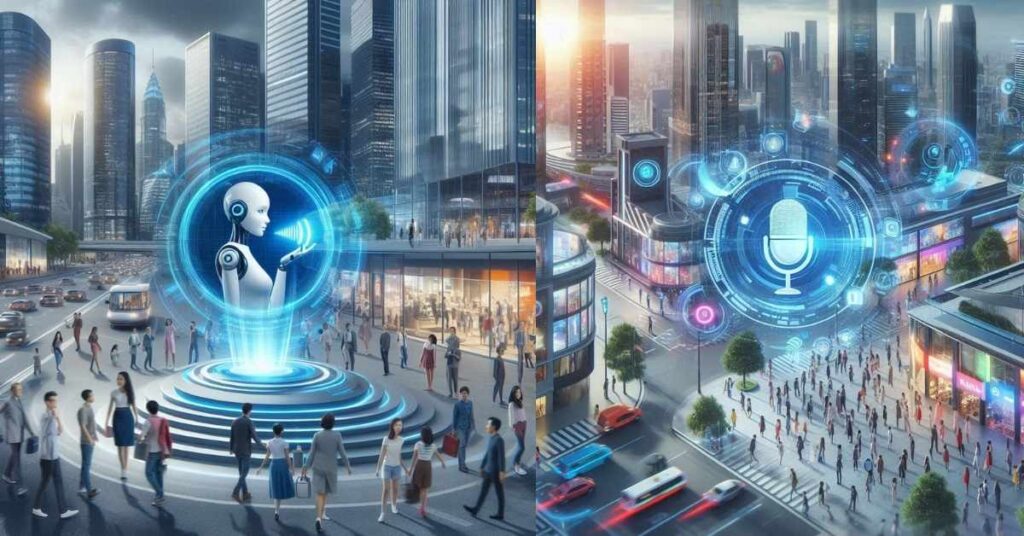
Customer service has long been plagued by frustrating wait times, impersonal interactions, and the high costs of round-the-clock support. But what if these challenges aren’t inevitable, just outdated. AI voice agents are rewriting the rules of engagement, blending instant responsiveness with human-like empathy to deliver 24/7 personalized support, slash operational costs, and even anticipate needs before they arise. By breaking language barriers, integrating seamlessly with CRM systems, and learning from every interaction, these intelligent systems aren’t just solving problems, they’re redefining what exceptional customer service looks like in the age of AI.
AI Voice Agents: Eliminating Long Wait Times in Customer Service
Long wait times have long been a thorn in the side of customer service, with 60% of consumers citing delays as their top frustration, according to a Salesforce report. Traditional call centers struggle with peak-hour bottlenecks, understaffing, and repetitive queries that clog phone lines—issues that erode customer loyalty and inflate operational costs. Enter AI voice agents, powered by natural language processing (NLP) and machine learning, which are tackling these inefficiencies head-on.
Unlike human agents constrained by bandwidth, AI voice systems handle thousands of simultaneous calls, instantly resolving common issues like billing inquiries, appointment scheduling, or order tracking. For instance, a major telecom company reduced average wait times from 12 minutes to under 30 seconds by deploying AI voice bots during peak hours. These agents operate 24/7, eliminating “business hours” limitations and cutting queue volumes by up to 40%, as seen in retail and healthcare sectors.
Hyper-Personalization: How AI Voice Agents Tailor Every Interaction
AI voice agent analyze data points—purchase history, past interactions, even regional dialects—to craft responses that feel bespoke. For instance, Salesforce’s Einstein AI integrates with CRM systems to predict customer needs before they articulate them. A returning traveler might receive tailored flight rebooking options, while a loyal shopper gets recommendations aligned with their style. The result? Interactions that mimic the intuition of a trusted concierge.
Breaking Language Barriers: Multilingual AI Voice Agent Go Global
Global brands no longer need armies of multilingual staff. AI voice agents like those powered by Google’s Universal Speech Model dynamically translate conversations across 100+ languages, accent nuances included. A recent Unbabel case study showed a 40% increase in customer satisfaction when European telecoms deployed AI-driven multilingual support, proving that language barriers are now optional.
24/7 Support: AI Voice Agents Revolutionize Round-the-Clock Service
Human agents need sleep; AI doesn’t. Companies like Zendesk report that AI handles 65% of routine inquiries outside business hours, from password resets to tracking updates. This always-on availability isn’t just convenient—it’s become a baseline expectation.
Cost-Effective Service: How AI Slashes Customer Support Expenses
Automating repetitive tasks slashes operational expenses. A 2023 IBM study found AI reduces customer service costs by up to 30%, redirecting savings toward complex issues requiring human empathy. Translation: fewer mundane calls, more meaningful connections.
Proactive Support: AI Voice Agents Anticipate Customer Needs
Imagine your bank’s AI detecting frustration in your voice during a call and immediately offering a loan payment extension. Tools like Cognigy.AI use sentiment analysis to escalate issues preemptively, reducing churn. It’s customer service that reads between the lines.
Seamless CRM Integration: Supercharging Support with AI Voice Tech
When AI voice tech syncs with CRM platforms like HubSpot, agents—human or AI—gain instant access to a customer’s entire history. No more “Can you repeat your account number?” Just seamless, informed conversations.
Emotionally Intelligent AI: Sentiment Analysis in Voice Interactions
Beyond Verbal’s emotion analytics can decode vocal tones to assess stress or satisfaction. Pair this with AI voice agents, and you’ve got a system that adjusts its tone, pace, and solutions based on your mood—a game-changer for industries like healthcare or finance.
Human + AI Collaboration: Redefining Customer Service Teams
AI handles the grunt work; humans tackle the nuanced. Microsoft’s collaboration with Nuance empowers healthcare providers by automating administrative tasks, freeing staff to focus on patient care. The lesson? AI isn’t replacing teams—it’s upgrading them.
The Future of AI Voice Agents: Voice Cloning and Beyond
Voice cloning, pioneered by tools like Resemble AI, lets brands replicate a specific agent’s voice for consistency. But ethical questions linger: How do we prevent misuse? Transparency and consent are non-negotiables as this technology evolves.
Traditional vs. AI-Enhanced Support: A Snapshot
| Feature | Traditional | AI-Driven |
| Availability | Limited hours, holiday closures | 24/7, no downtime |
| Cost Efficiency | High labor costs | Up to 30% savings (IBM, 2023) |
| Personalization | Generic responses | Data-driven customization |
| Language Support | Limited to staff proficiency | 100+ languages, real-time translation |
| Proactive Solutions | Reactive troubleshooting | Predictive issue resolution |





[…] media has its place—brand building, engagement, and community growth. But for **B2B lead generation, sales nurturing, and measurable ROI**, email marketing still reigns […]
[…] stranger’s door. Warm emails? More like catching up with an old friend. Both have their place in sales and marketing, but using them effectively requires understanding their key […]